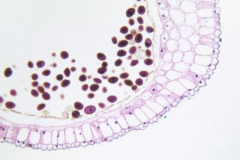Published 3 November 2023
AI case study: GenAI as "assisted format" for generating a research rationale
The academic & their views on GenAI
Gee Chong Ling is an Education Focussed Lecturer in the School of Biotechnology and Biomolecular Science. With Gee’s experience in educational design and technical support, he is interested in the redesign of practical learning experiences through the integration of electronic laboratory notebooks into undergraduate courses to promote good documentation practice in our Science graduates.
Jai Tree is an experienced researcher and Associate Professor within the School of BABS, who convened the course for several years before the two joined forces in T1 2022. He is the mastermind in establishing the course project assessment in an authentic fashion, boosting both traditional and modern microbiology techniques, serving as a sophistically designed introductory learning lesson into the world of microbiology. The course project, which uses assessment as learning principles, has created one of the most engaging assessments for our Science graduates in the mid-phase of the degree program.
Gee sees AI pragmatically and thinks that its relationship with assessment is best understood and dealt with through the pedagogy of assessment as learning and authentic assessment. In the context of MICR2011, AI not only serves as a planner, but potentially as an assistant to guide students' learning in understanding the data generated from the experiment. If it is used correctly, this can produce a higher quality output in a much quicker format. However, as the results and analysis are dependent on samples collected in the real world, AI cannot provide students with the outcomes of the experiments and an answer.
Assessment overview
| Course | MICR2011 – Microbiology 1 |
| Assessment type |
A scaffolded assessment which involves a mixture of scientific fieldwork/experimentation and reporting on the process in the form of Lab Reports. There are 4 key deliverables in the assessment process:
|
| Goal |
Develop students' laboratory skills in microbiology, understanding of micro-organisms in their environment and the skills of scientific writing and research including evaluative judgment of past research. |
| Assessment focus |
|

